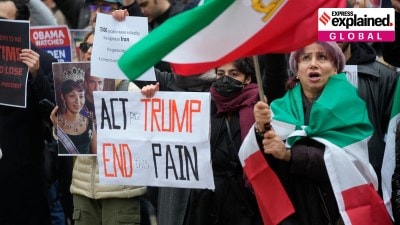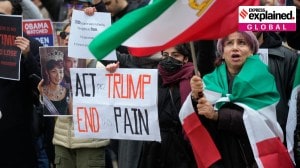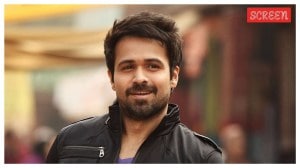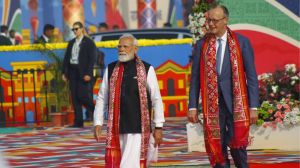Pre-emptive deadlock on Kashmir
My mailbox was jammed all week with letters attacking me for suggesting international mediation to resolve the Kashmir problem. It is my hop...

My mailbox was jammed all week with letters attacking me for suggesting international mediation to resolve the Kashmir problem. It is my hope that some of you letter writers have been paying attention to the latest round of sabre-rattling on the Indian sub-continent because it might have persuaded you that an international peace process is the only way forward. All we seem capable of is polemics. This round of nonsensical noise-making was started by India. Our Minister of External Affairs, affected by the winds that blow from Iraq, announced that he thought Pakistan the 8216;8216;fittest8217;8217; case for a 8216;8216;pre-emptive strike8217;8217;. Confusingly, he opposes pre-emptive action on Iraq but supports it on Pakistan. How could Pakistan not respond to such open provocation? So, within hours we had the Pakistani Foreign Minister, Khurshid Kasuri, warn India of 8216;8216;massive retaliation8217;8217; to any pre-emptive action. Then, our Defence Minister, George Fernandes, decided it was time for him to speak his mind and declared, as he has before, that India8217;s chances of surviving a nuclear war were goodish while Pakistan would surely be wiped off the face of the earth. This kind of talk is childish, dangerous and embarrassing from two nuclear powers but it is almost always the only kind of discourse that results when India and Pakistan decide to talk. Is it any wonder that we have moved no closer to resolving our differences on Kashmir?
We will move no closer either because what we say is often not what we mean. So, while our Ministry of External Affairs has ostensibly remained adamantly against international intervention it also expects America to make Pakistan behave. Our officials do not hesitate to express 8216;8216;disappointment8217;8217; at America not using its 8216;8216;leverage8217;8217; to bring Pakistan to heel. No sooner did tensions heighten this time than Yashwant Sinha was on the telephone to Colin Powell to have, as this newspaper reported, 8216;8216;a half-an-hour candid exchange on Pak-sponsored terrorism in J-K as well as the reconstruction efforts in post-war Iraq8217;8217;.
When Kargil got too hot to handle it was the Pakistani Prime Minister who ran to Washington to seek intervention and it was, please remember, because Bill Clinton intervened that Pakistan pulled its 8216;8216;Kashmiri freedom fighters8217;8217; back to its side of the border. So, de facto, there is already international mediation and, inevitably, when there is only one superpower left it is to this superpower that we turn. This bothers us in India because anti-Americanism is an old national characteristic.
An intriguing aspect of the letters that jammed my mailbox was that the one thing they had in common was virulent anti-Americanism. This stemmed not just from the conviction that America would always side with Pakistan but from that old mistrust so carefully nurtured in those long Cold War years when India was a non-aligned Soviet satellite. Our dislike for America was always paradoxical because it was laced with deepest admiration. Although we were on the side of the Soviet Union we resented our leaders making that country our role model. Our socialist, secular republic was a shabby country that made shabby goods that nobody wanted to buy so we bartered them for shabby Soviet armaments and longed secretly for the American way of life. No sooner did Dr. Manmohan Singh lift the controls slightly than we turned joyously towards America, embracing Mcdonalds and Pizza Hut and exporting our computer software and garments. The process of economic liberalisation may be slow but India has changed beyond recognition in the past ten years. So, we should be able to shake off the ideological dilemmas of our socialist past but, perhaps because our politicos, officials and intellectuals continue to be of largely Leftist persuasion, we remain stuck in a Cold War mindset in matters of foreign policy.
Jaswant Singh tried to take a new road, based on national interest and not ideology, but no sooner did he move to Finance than the MEA appears to have reverted back to the anti-Americanism of our socialist days. The most embarrassing consequence of this was that resolution condemning the war on Iraq that Parliament passed even as Iraqis were smashing Saddam Hussein8217;s statues and dancing in the streets of Baghdad. The Iraqi dictator appears to have more admirers in India than his own country or we should have seen some signs of protest. If even 20,000 of Baghdad8217;s citizens had come into the streets to stop the American tanks the war could have had a different ending.
The world has changed unimaginably since September 11, and it is by recognising, and using to our advantage, the changed geo-political realities that we need to look for a resolution of the Kashmir dispute. We could begin by accepting that the problem is no longer one that can be solved domestically by the Prime Minister making a flying visit or sending yet another interlocutor to talk to the militant groups. Judging by their reactions to the Prime Minister8217;s visit it is clear that they speak for Pakistan anyway so is there any point in talking to them while refusing to talk to their masters in Islamabad? The Vajpayee government made two sincere, valiant efforts to persuade Pakistan8217;s military dictator that India wanted peace. It failed in Lahore and it failed again in Agra. That should be good enough reason for us to accept that we need to find a new way to talk to each other. Meanwhile, the Prime Minister would do well to order his ministers to refrain from making any more foolish foreign policy statements.
Email the Author
- 01
- 02
- 03
- 04
- 05































